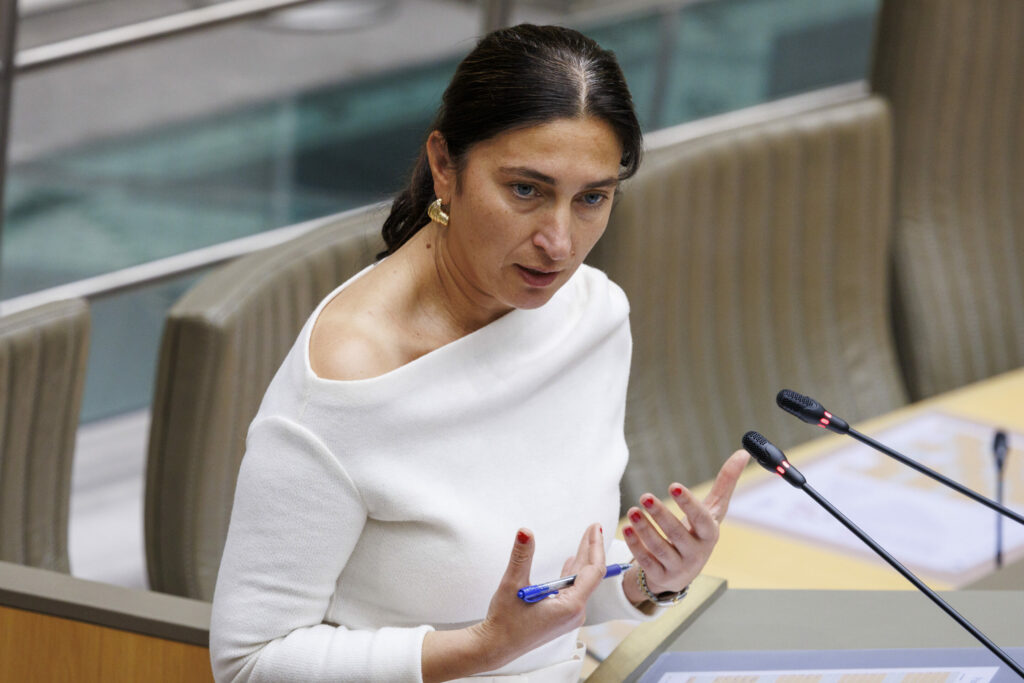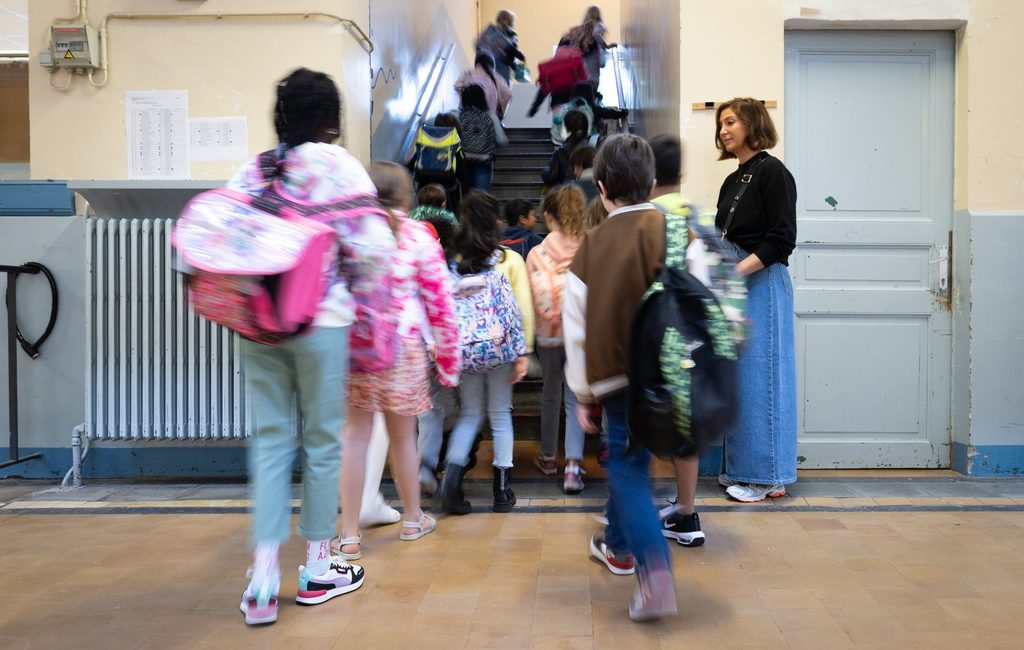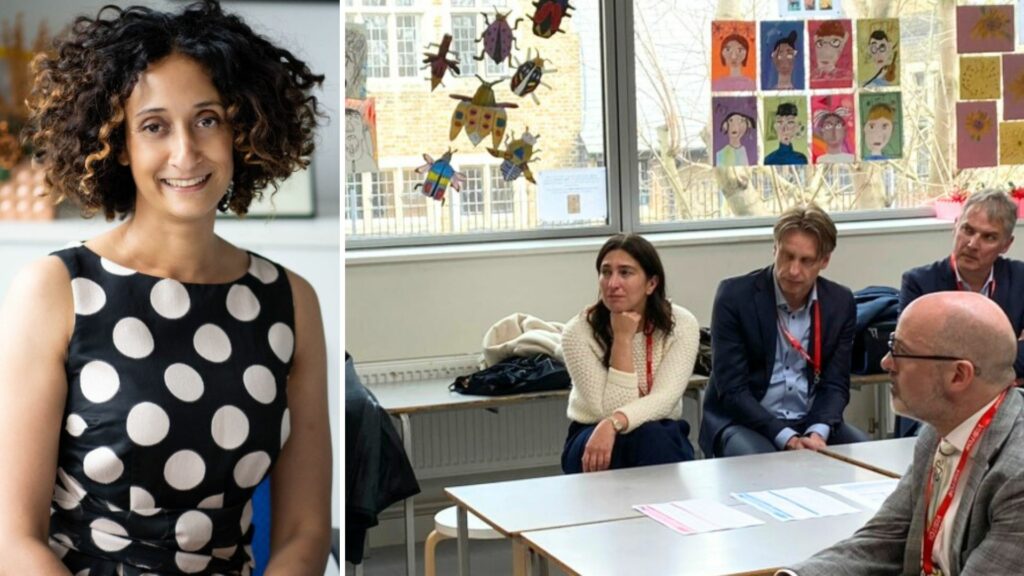To save Flanders' education system from backsliding completely, Flemish Education Minister Zuhal Demir (N-VA) visited schools in London rising in international rankings and take lessons from "Britain's strictest headmistress".
While Dutch-language education was previously among Europe's best in the Trends In Mathematics and Science Study (TIMSS), the latest test results show that the quality of education has reached a low point last year.
"Flemish pupils scored very poorly on these tests, dropping from 11th place in 2015 to 17th in 2019 and now even 28th for maths. While we are registering a downward trend, the United Kingdom is going in the opposite direction," Demir's spokesperson Thomas Everix told The Brussels Times.
Back to the basics
The UK went through a similar phase of poor results long before Belgium, but the country started rising in international rankings again some 15 years ago. At the time, many schools changed tracks and committed to combining a knowledge-rich curriculum with better teaching and a focus on good behaviour.
"As a result, we see that the whole world is looking at some of these schools in England. In Flanders, pupils who do not speak Dutch at home score remarkably lower. In the UK, this is not the case at all," Everix said. "They are facing the same challenges in terms of migration and integration as us, but their results do not suffer."
In previous interviews, Demir repeatedly stated that education experts have spent the last 30 years trying and failing to reinvent the wheel. "We need to get back to the basics. And these schools in the UK are a good example of that."

Flemish Minister for Education Zuhal Demir (N-VA) pictured during a plenary session of the Flemish Parliament. Credit: Belga/Nicolas Maeterlinck
The minister's first stop is the West London Free School, whose pupils score in the top 1% of all English schools in general final exams. Demir's second stop, the much talked about Michaela Community School founded by "Britain's strictest headmistress" Katharine Birbalsingh in Wembley, has been named the school making the most progress with its pupils' results for three consecutive years.
"It is all about the basics: a knowledge-rich curriculum, good teaching with a focus on some key topics (language, mathematics, science and technology), structure and discipline," Everix explained. "This is the winning combination that we also used around 20 years ago, but it got lost."
Demir stressed that while discipline "has got a bit of a bad rep in Belgium," she considers it as a form of love. "It creates a calm environment, and that is what is needed for children to grow up in a good and pleasant learning climate."
10 points to Gryffindor?
In the London Free Schools, the bar is very high – not only for pupils' results, but also in terms of their behaviour: they write neatly, quickly form orderly queues, are silent in the hallways and stand up when the teacher enters the room. "It may all sound a bit silly, but this just does not happen here anymore. But over there, you have 7-year-olds learning about Julius Caeser and the Roman Empire."
To foster pupils' sense of responsibility, classes are divided into four 'houses' – Harry Potter style. The groups are in constant competition with each other. Pupils who get good grades or exhibit good behaviour earn points for their house, while those who are rude or fail a test cost their peers points.
"This means that if one person has been rude, a point is deducted from the whole group – playing into the group spirit," Everix said. "There is a zero-tolerance policy for disruptive behaviour, and it is very much linked to this."

Credit: Belga / Benoit Doppagne
What's maybe the most important part of all, he stressed, is that these pupils are not any different from those in Flanders. These are state schools, not expensive private institutions: an overwhelming majority of pupils (89%) come from underprivileged or vulnerable backgrounds, and they speak 86 different languages at home. "These are those same students among the 1% best."
At the Michaela Community School, they take this sense of structure even further with a strict schedule: timed bathroom breaks, for example, or pupils having ten seconds to open their books on the right page, otherwise they are punished.
However, Headmistress Birbalsingh – who has gone on tirades against "woke culture" and "Marxist" education ministers and believes "gentle parenting" is the root of everything wrong with today's pupils – is highly controversial and her methods have been strongly criticised.
While education experts acknowledge that Michaela's academic results are indeed excellent, they also stressed that many other schools that do not subscribe to its philosophy also achieve these result. The web of factors that inform how schools perform is complex, they added. –
How will this be translated into Flemish education?
In any case, Demir emphasised that she does not want to blindly copy Michaela's system, but she just wants to take the good elements from it. "It all sounds a bit extreme, but they do work with the same elements: respect, order, discipline," Everix said. "Obviously, no one is getting punished for not taking out their books in time."
Still, the aim is to establish a routine so lessons can run as efficiently as possible, so more time can be spent on teaching and learning. "People learn best in a quiet environment with high standards, and that is what we are trying to create."
Demir wants to go back to the basics: reintroducing the knowledge-rich curriculum with basic subjects (Dutch, maths, science) and good teaching through clear instructions remains the biggest pillar. "We also need to create a structured and quiet school environment, and set high expectations. We should not lower the bar so that everyone can get over it, but instead we should make everyone strong enough to get there."

Pupils pictured on the playground on the first day of the new school year. Credit: Belga/Eric Lalmand
Now, an education expert committee is re-formulating Flanders' minimum attainment targets for all pupils. The new targets must be ready by the Easter holidays (which start on 7 April), so Demir will have enough time to get them approved by the Flemish Parliament before the new school year starts.
"On 1 September 2025, we will start with the new minimum attainment targets for Dutch and maths, because those have the highest priority," Demir's office explained. That is a transition year, meaning that all schools have until 1 September 2026 to get everything ready in terms of textbooks and lesson plans. Another year later, on 1 September 2027, the minimum attainment target for all courses will be implemented.
"What we have seen is impressive. Yet, these teachers are no geniuses and we did not get to see specifically selected pupils," Demir said. "Our teachers are equally strong. Our students are equally smart. We should also be able to do this."

